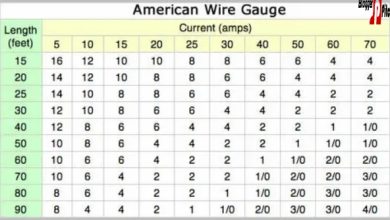Industrial Flow Meter- Role, Types, and Specifications

All firms need water flow meters to regulate and gauge the amount of water they use in a month. It’s a way of tracking fluid use and minimizing loss. The majority of the industries deal with industrial fluids. Thus, they will need an industrial flow meter to reduce wastage and increase profits.
A water flow meter is a tool that gauges the mass, volumetric, linear, and non-linear flow rate of a fluid. You can work with a type of industrial water meter depending on your fluid characteristics. Sometimes, the accuracy requirements affect the type of flow meter you should choose.
Here we will highlight the common types of water flow meters. We will also check the specifications and applications of Industrial water flow meters.
Role of Industrial Flow Meters
The primary role of all flow meters is to gauge the flow rate of the fluid passing through a channel—the additional functions depending on the industry needs. For example, you can gauge flow rate to know the fluid used in the industry. You can also use the meter readings to track your profits and assess your losses. Below are the roles of flow meters in various sectors.
Medical
Oxygen machines need a flow meter to regulate the amount of oxygen that gets to a patient. Several patients may use oxygen from one source. Thus, the hospital will need another flow meter to gauge the amount of oxygen from the primary source. Ir also regulates the flow depending on the number of patients.
Flow meters are also vital in anesthetic devices. They help to regulate docking according to the patient’s needs.
Medical research is another area that needs accurate flow gauging. Scientists use the meters to regulate the flow when packaging medicine and other medical products.
Die Casting
The die casting industry uses high heat ranges. Thus it would help if you had a coolant to regulate the heat in the working area. Industrial devices hold the heat by allowing enough coolant to get to the heated area.
The meters are also helpful in regulating the flow of die lubricants. The lubricants shield the surface from heat peaks when you pour molten metal on the die cavity.
Automotive Industry
Automotive engines need two types of fluids to run. First, it needs gas in the form of a petroleum product. Second, a flowmeter gauges the amount of gas remaining in the tank. Thus, you will assess when you need to visit the gas station.
The engine depends on a motor to run. Several rotations of the motor cause eating. Thus, it would help if you had water coolant. A water flow meter will help run the water within the system. Therefore, it lowers the heat levels of an engine.
Several other industries need industrial flow meters. The three examples above are to highlight the choice of meters according to accuracy needs.
Types of Flow Meters
There are tens of flow meters that you can find in the market. However, many of them are not helpful for large-scale uses. Here are the common types of flow meters you can use.
Positive Displacement Flow Meters
These are industrial flow meters that displace a known amount of fluid with each rotation. They fall under the class of volumetric flow meters. Gear meters and oscillating piston meters are among the flow meters under this class.
PD meters are standard in chemical industries. They are praised for their accuracy as long as they have no leaks. They’re the same meters that you will find in the food and beverage industries and medical fields. They have reliable accuracy and repeatability. However, they need constant maintenance and check-up. Any mess in such industries can lead to mass poisoning.
Electromagnetic Flow Meters
These types of flow meters use magnetic fields to induce a voltage that you detect as a signal. This means that the fluid needs to have electric properties to function well with the flow meter.
The meters are helpful in wastewater management. You can also use them to gauge water, process water, untreated sewage, and chemicals. The primary industries of use include wastewater, pulp and paper, water processing, mining, mineral processing, and chemical industries.
Ultrasonic Flow Meters
These meters are helpful in viscous fluid uses. They use an ultrasonic signal to track the flow of fluids. Thus, you will need a fluid with impurities. That’s why they are common in wastewater management.
Ultrasonic meters will use a sound wave to track the volumetric flow rate of a fluid. When the fluid is at rest, the frequencies of the sound signal are several other industries and the same as the reflection of the sound from the fluid. However, there are changes when the fluid starts moving. The Doppler effect causes the change.
You need to send two sound signals for an ultrasonic flow meter to function well. When the fluid is at rest, the sound speed is similar upstream and downstream. However, in flowing conditions, the sound signal travels faster downstream than upstream.
These meters are useful in chemical industries, wastewater management, water processing, and industries that use cryogenic liquids and molten sulfur.
Coriolis Flow Meters
They are also known as mass meters. They gauge the mass flow rate of a fluid. Also, several other industries need the meters to use a unique calculator to display the mass flow rate. They use the Coriolis principle for calculation.
The meters pride themselves on high accuracy. However, their initial installation is costly. They are low maintenance, hence are easy to use. Also, they handle a wide flow range.
You can use Coriolis flowmeters in hard-to-handle fluids. They are your go-to choice for corrosive and dirty fluids. They are applicable in a wide range of industries that deal with liquids and gases.
Turbine Flow Meters
Turbine flow meters have a rotor that rotates when fluids pass through them. The speed of rotation directly relates to the flow rate of the fluid. They have seniors on one or more blades that gauge the number of revolutions per unit time.
They are mechanical flow meters. Thus, they need to be within the flow channel to function. You will need to use them with clean and light fluids to prolong their life. They may not work well with highly viscous fluids.
They are applicable in a wide range of industries. They include food and beverage, medical, chemical, utility gas, oil and gas, water and wastewater, etc.
Vortex Flow Meters
Vortex flowmeters were invented when other flow meters proved hard to use. They use the principle of vortex shedding. The meters have a barrier on the inner surface that creates vortices downstream. The frequency of the vortices tells the velocity of the fluid.
The meter works best in a straight channel. It ensures it has a constant flow upstream before getting to the gauging area.
They are best applied in large pipes. It explains their vast use in many large firms. The meters beat the effect of heat, pressure, density, and low flow rates.
Conclusion
There are other types of industrial flow meters. But the listed above are the most common. It’s because they have a reliable accuracy range and repeatability. Here, you will get all types of water flowmeters that are produced with high-quality material.




